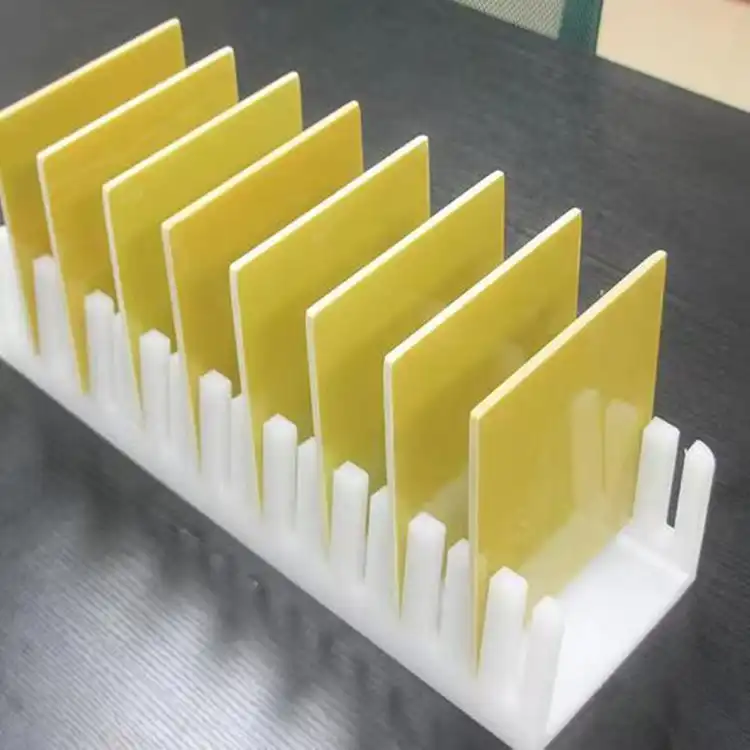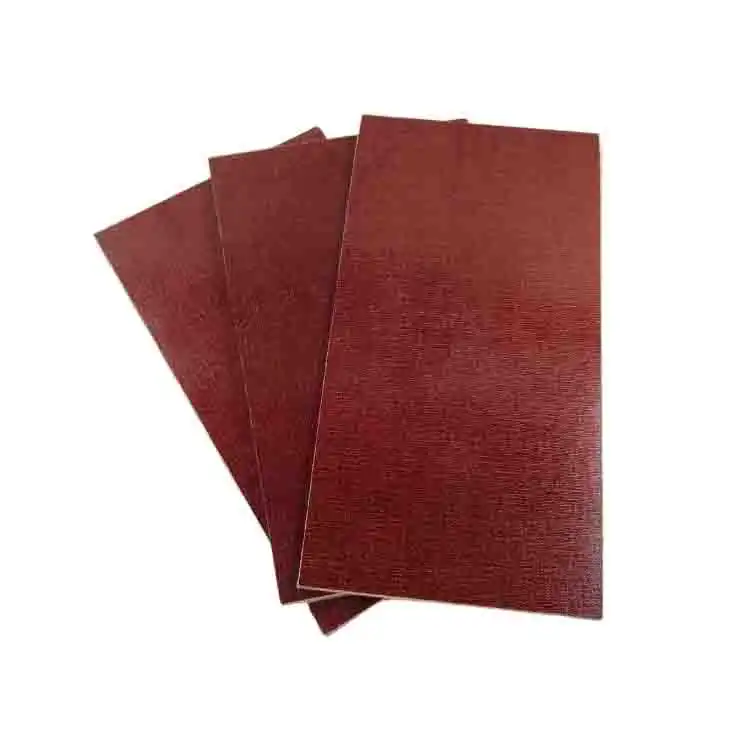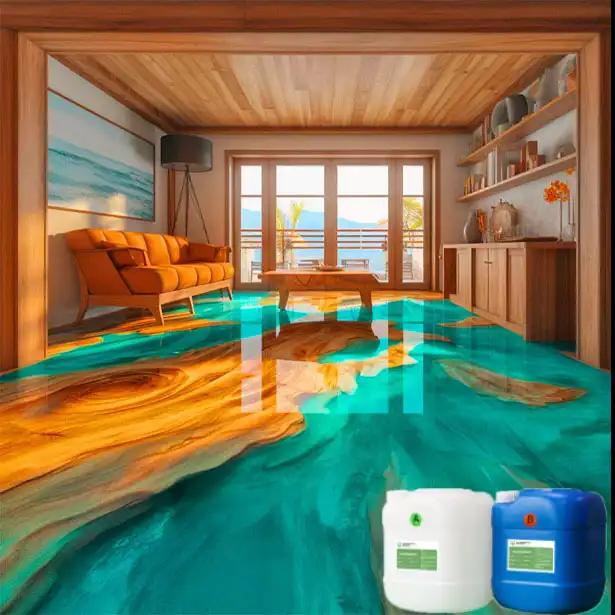What Industries Most Commonly Use 3240 Epoxy Sheets?
2024-07-05 14:33:05
3240 epoxy sheets, known for their exceptional mechanical strength, electrical insulation properties, and durability, are a critical component in various industries. These sheets, made from epoxy resin reinforced with fiberglass cloth, are designed to perform reliably under a wide range of conditions. In this blog, we will explore the industries that most commonly use 3240 epoxy sheets and delve into why these industries rely on this material.
Why Is the Electrical and Electronics Industry a Major User of 3240 Epoxy Sheets?
The electrical and electronics industry heavily relies on materials that provide excellent insulation and mechanical protection. This section will discuss the various applications of 3240 epoxy sheets in this industry and why they are favored over other materials.
High Dielectric Strength
One of the primary reasons the electrical and electronics industry uses 3240 epoxy sheets is their high dielectric strength. Dielectric strength refers to the maximum electric field a material can withstand without breaking down. 3240 epoxy sheets offer superior dielectric strength, making them ideal for insulating components such as transformers, circuit breakers, and switchgear. This property ensures that the electrical components remain insulated, reducing the risk of short circuits and electrical failures.
In comparison, materials like mica and paper-based laminates also offer good dielectric properties but lack the mechanical strength and thermal stability provided by 3240 epoxy sheets. This makes 3240 epoxy sheets a more robust choice for high-performance electrical insulation.
Thermal Stability
Electrical components often generate heat during operation, necessitating materials that can withstand elevated temperatures without degrading. 3240 epoxy sheets exhibit excellent thermal stability, typically up to 155°C, with some variants capable of withstanding even higher temperatures. This thermal stability ensures that the material does not lose its insulating properties or mechanical integrity under continuous thermal stress, making it suitable for use in high-voltage applications and power electronics.
Compared to other insulating materials like PTFE, which can withstand higher temperatures but may not offer the same mechanical rigidity, 3240 epoxy sheets provide a balanced solution for both thermal and mechanical requirements.

Moisture Resistance
In the electrical and electronics industry, moisture can cause severe problems such as corrosion and electrical leakage. 3240 epoxy sheets offer excellent moisture resistance, ensuring that they maintain their insulating properties even in humid or damp environments. This makes them ideal for outdoor electrical installations, marine applications, and other settings where moisture exposure is a concern.
Materials like paper-based laminates are prone to moisture absorption, which can compromise their insulating properties. In contrast, 3240 epoxy sheets, with their low water absorption rate, provide reliable performance in moisture-prone environments.
Applications in Electrical and Electronics
The applications of 3240 epoxy sheets in the electrical and electronics industry are vast. They are used in manufacturing transformers, where they serve as insulating barriers between windings, preventing electrical leakage and enhancing efficiency. In circuit breakers and switchgear, 3240 epoxy sheets provide structural support and electrical insulation, ensuring safe and reliable operation. Additionally, these sheets are used in printed circuit boards (PCBs) for mechanical protection and electrical isolation of components.
How Does the Automotive Industry Benefit from Using 3240 Epoxy Sheets?
The automotive industry demands materials that can withstand mechanical stress, high temperatures, and exposure to various chemicals. This section will explore how 3240 epoxy sheets meet these requirements and their applications in the automotive sector.
High Mechanical Strength
The automotive industry requires materials that can endure high mechanical stress and impact. 3240 epoxy sheets offer high tensile and flexural strength, making them suitable for use in structural and protective components. This strength ensures that the materials can withstand the vibrations and mechanical shocks encountered in automotive applications, such as engine compartments and underbody panels.
Compared to materials like fiberglass, which offer good mechanical properties but may not match the tensile strength of 3240 epoxy sheets, the latter provides a more robust solution for high-stress applications.
Thermal Resistance
Automotive components are often exposed to high temperatures, especially near the engine and exhaust systems. 3240 epoxy sheets exhibit excellent thermal resistance, maintaining their mechanical properties and structural integrity at elevated temperatures. This makes them ideal for use in heat shields, battery insulation, and other components that need to perform reliably under thermal stress.
While materials like PTFE can withstand higher temperatures, they may not provide the same level of mechanical strength and rigidity as 3240 epoxy sheets. This balance of thermal and mechanical properties makes 3240 epoxy sheets a preferred choice in the automotive industry.
Chemical Resistance
Automotive environments expose materials to various chemicals, including oils, fuels, and cleaning agents. 3240 epoxy sheets offer excellent chemical resistance, ensuring that they do not degrade or lose their properties when exposed to these substances. This chemical resistance makes them suitable for use in fuel system components, protective covers, and other parts that come into contact with harsh chemicals.
Compared to rubber and certain plastics, which may degrade when exposed to automotive chemicals, 3240 epoxy sheets provide a more durable and long-lasting solution.
Applications in the Automotive Industry
In the automotive industry, 3240 epoxy sheets are used in various applications. They are employed in the insulation of battery packs, where they provide thermal and electrical insulation, ensuring safe and efficient operation. In engine compartments, these sheets serve as heat shields, protecting sensitive components from heat damage. Additionally, 3240 epoxy sheets are used in the construction of lightweight, high-strength structural components, contributing to the overall durability and performance of vehicles.
What Role Do 3240 Epoxy Sheets Play in the Aerospace Industry?
The aerospace industry operates in some of the most demanding environments, requiring materials that offer exceptional performance in terms of strength, weight, and environmental resistance. This section will examine how 3240 epoxy sheets meet these stringent requirements and their applications in the aerospace sector.
High Strength-to-Weight Ratio
One of the critical requirements in the aerospace industry is a high strength-to-weight ratio. Materials need to be strong enough to withstand the stresses of flight while being lightweight to improve fuel efficiency and performance. 3240 epoxy sheets offer an excellent strength-to-weight ratio, making them ideal for use in aerospace applications where both strength and weight are critical factors.
Compared to metals, which are strong but heavy, 3240 epoxy sheets provide a lighter alternative without compromising on strength. This balance is essential in aerospace applications, where every gram of weight saved contributes to better performance and efficiency.
Thermal and Chemical Resistance
Aerospace components are exposed to extreme temperatures and various chemicals, including hydraulic fluids, fuels, and de-icing agents. 3240 epoxy sheets exhibit excellent thermal and chemical resistance, ensuring that they maintain their properties and structural integrity under these harsh conditions. This resistance makes them suitable for use in aircraft interiors, engine components, and protective covers.
Materials like PTFE and certain high-temperature alloys can also withstand extreme conditions, but 3240 epoxy sheets offer a more balanced combination of mechanical strength, weight, and resistance properties.
Flame Retardancy
Safety is paramount in the aerospace industry, and materials used in aircraft must exhibit flame retardancy to prevent the spread of fire. 3240 epoxy sheets are often formulated to be flame retardant, meeting stringent safety standards and regulations. This property ensures that they contribute to the overall safety of the aircraft, providing additional protection in the event of a fire.
Compared to other insulating materials that may not offer the same level of flame retardancy, 3240 epoxy sheets provide a safer option for aerospace applications.
Applications in the Aerospace Industry
The applications of 3240 epoxy sheets in the aerospace industry are extensive. They are used in the manufacturing of aircraft interiors, providing structural support and insulation for cabin components. In engine compartments, these sheets serve as protective covers and insulation barriers, protecting critical components from heat and chemical exposure. Additionally, 3240 epoxy sheets are employed in the construction of lightweight structural components, contributing to the overall strength and performance of the aircraft.
Conclusion
3240 epoxy sheets are indispensable in various industries due to their exceptional mechanical strength, thermal stability, chemical resistance, and electrical insulation properties. In the electrical and electronics industry, they provide reliable insulation and protection for critical components. The automotive industry benefits from their high mechanical strength and chemical resistance, making them suitable for demanding applications. In the aerospace industry, their high strength-to-weight ratio, thermal resistance, and flame retardancy make them ideal for use in aircraft components. These versatile properties make 3240 epoxy sheets a preferred choice for industries requiring durable and reliable materials.
References
1. "Epoxy Resin: Material Properties and Applications" - ScienceDirect
2. "Dielectric Materials in Electrical Insulation" - IEEE Xplore
3. "Thermal Management in Electronic Devices" - Journal of Power Sources
4. "Mechanical Properties of Composite Materials" - Material Science Journal
5. "Chemical Resistance of Epoxy Composites"- Industrial Engineering Journal
6. "Thermal Conductivity of Epoxy Resins" - Journal of Applied Polymer Science
7. "Flame Retardancy in Aerospace Materials" - Aerospace Engineering Journal
8. "Applications of Epoxy Sheets in the Automotive Industry" - Automotive Engineering Magazine
9. "High-Temperature Performance of Composite Materials" - Journal of Thermal Analysis and Calorimetry
10. "Environmental Resistance of Epoxy Sheets" - Journal of Environmental Engineering






_1747991245292.webp)
